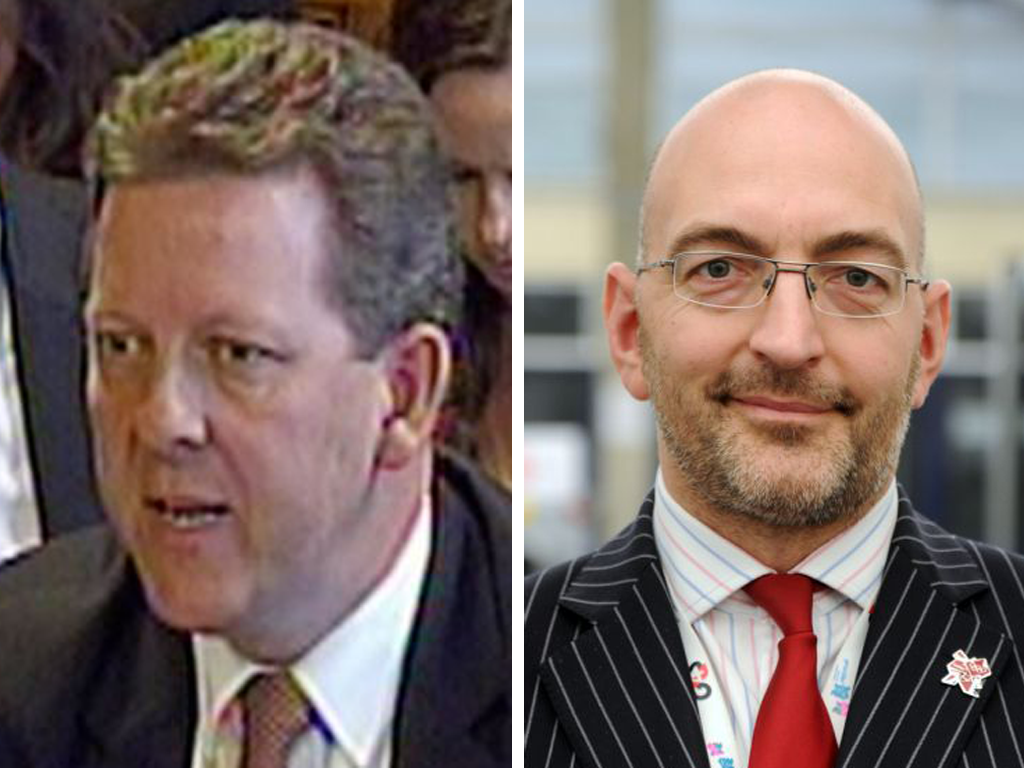A sorry end for the 'scapegoats' at sharp end of G4S fiasco
Olympian hubris prompts world's second-largest employer to sacrifice its senior executives. Kim Sengupta reports

Asked in an interview not so long ago what had been his best experiences in life, David Taylor-Smith responded that one of them was "being chased by a rhino". The chief operating officer of G4S must have felt he was undergoing something similar in the aftermath of the Olympics debacle with the sensation perhaps not so enticing this time around.
The rhino has caught up with Mr Taylor-Smith with painful consequences. He is one of two executives who have paid the price for the security firm's failure to provide enough guards for the London Games and the humiliation and opprobrium that followed.
The way Mr Taylor-Smith was treated at the end, say his friends, was grossly unfair towards someone who has worked hard for the company for the last 14 years. The news of his departure was leaked to Sky television 36 hours before the board made their decision public; he was, they held, being made a scapegoat for failings which go far wider in the management.
Mr Taylor-Smith's detractors, and there are a few in G4S, hold that he was the author of his own misfortune and that the Olympics shortcomings were the result of his management style which was characterised by an unwillingness to listen to the views of others and surround himself with yes men.
Following the company's failure to provide the 10,400 security guards for the Olympics, G4S commissioned an inquiry by PricewaterhouseCoopers. It found that G4S had failed to strengthen its management and its "structures and processes" to handle the "unique and complex" task it faced.
Although Mr Taylor-Smith and Ian Horseman-Sewell, managing director of global events, resigned, the chief executive, Nick Buckles, has kept his job, the board deciding on this "in the best interest of the company and all its shareholders". Whilst the chief executive has ultimate responsibility for the company's performance, the review did not identify significant shortcomings in his performance or serious failings attributable to him in connection with the Olympics contract.
Until the recent turn of events, allies of Mr Taylor-Smith hoped that he would one day succeed Mr Buckles, heading the world's largest security company with branches in 125 countries, and, with 657,000 employees on its books, the third-largest global employer after Wal-Mart and Foxconn.
According to some former colleagues, a private dinner in January celebrating the chief operating officer post was described as in honour of "the king-in-waiting".
The Olympics put paid to that. It is ironic that the military had to step in to make up the shortfall in the security numbers. Mr Taylor-Smith had been an Army officer and, during his tenure, there was a dramatic increase in the numbers of ex-servicemen who were employed with huge excitement, it was said, on his part if they were SAS or from the Special Boat Service. Some of these appointments, say colleagues, were successful. But others not.
After the Army, Mr Taylor-Smith worked in conservation programmes in Latin America and Africa – where he had his rhino experience – before joining Securicor, which later formed part of G4S, in 1998. In 2006 he was appointed CEO of G4S in the UK and Ireland when the company was undergoing rapid expansion which saw it swallow up firms such as ArmorGroup and Chubb.
One of Mr Taylor-Smith's main claims to fame in the company, and a great boost to his upward trajectory was the acquisition of justice sector, contracts from the Government enabling them to operate detention centres. The business was highly lucrative but also led to controversy. There were highly publicised and embarrassing cases of prisoner escapes. Last year it was claimed that G4S guards had been repeatedly warned about the use of force on detainees and asylum seekers after the death of an Angolan deportee, Jimmy Mubenga, on a board a departing British Airways flight. An internal document urged management to "meet this problem head on before the worst happens" and that G4S was "playing Russian roulette with detainees' lives."
Mr Taylor-Smith cannot, of course, be held personally responsible for this and he is said to have instructed that procedures should be tightened up to stop any recurrence of malpractice. But it was his claim, in June this year just as the Olympics story was about to break, that G4S would be running large parts of the country's police forces within five years which led to former police officers in senior positions in the company having to telephone and mollify irate chief constables.
As well as massive damage to its reputation, the Olympic failure cost G4S around £50m. Critics of Mr Taylor-Smith claim that he was at least partly to blame for other major losses, especially around £50m which had to be paid out for the failed acquisition of the Danish facilities management group ISS A/S and £24m in various restructuring programmes.
Allies of Mr Taylor-Smith say this is just an attempt to make him the fall guy for all the company's travails. "The ISS bid was a board decision and there are plenty of others responsible for what happened there. As far as so-called restructuring goes, I am not sure how that figure was worked out, but all companies have to make changes and no doubt there are people who were unhappy about that" said one.
"The fact remains that it was perhaps inevitable that David would have to go, but it would be terribly unjust to ignore all the good he has done for the company."
Join our commenting forum
Join thought-provoking conversations, follow other Independent readers and see their replies
Comments
Bookmark popover
Removed from bookmarks